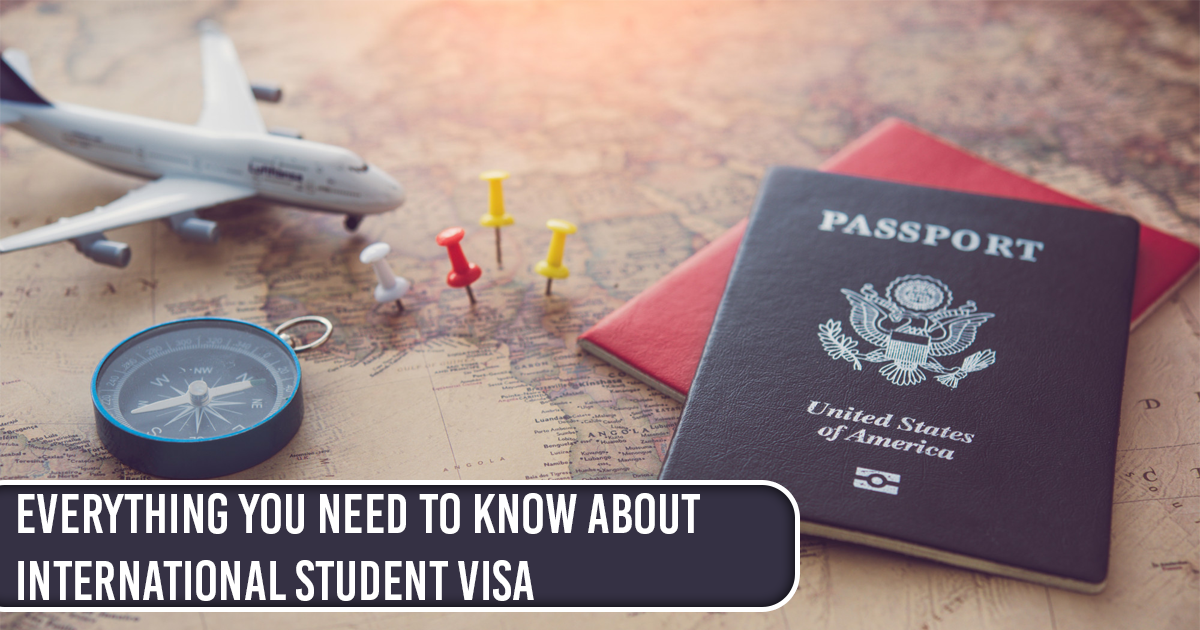A visa is essentially a document that allows a person to stay in another country for a specified amount of time. A student visa, thus, is a document permitting a student to stay in another country for educational purposes. At times, the visa also permits the student to stay for some months or years after the education, depending upon various factors.
Types of Student Visas
There are several kinds of education visas, depending upon the country you wish to pursue your education in. The UK, for example, has primarily two kinds of student visas: a short-term and a Tier 4 student visa, which is also referred to as the general student visa. Short-term would mean less than 6 months while Tier 4 tends to study longer than 6 months.
In some countries, the type of student visa is determined by your citizenship, educational status, and whether you are pursuing a technical education or a non-technical degree.
Requirements to Apply for Student Visa
The requirements also vary depending on the country you are applying to, for instance, student visa USA requirements differ from the visa requirements for the UK.
Passport
Primarily, you will need a valid passport. Now, the requirement of its validity would differ from country to country. Some countries require a passport which must be valid even till the end of your course while some do not have that requirement. Furthermore, if you are a travel enthusiast, ensure that your passport has at least two blank pages left for the visa.
Admit Letter
Next, you will need an admission letter from the university you are heading to. It must be a document that explicitly confirms your admission to a course at their university.
Language Proficiency Test
you will essentially need to prove that you are proficient in their native language. If you are planning to head to an English-speaking country, then the most commonly accepted language proficiency tests are TOEFL, IELTS and PTE. If you wish to go to Germany for your education, you must be certified with their CEFR Certified Levels.
Before you register for a language proficiency test, make sure you check their validity in the country you are going to.
Financial Requirements
Most countries ask for proof that you are financially capable of studying in the country as well as managing your living expenses. Some countries provide a specific number for living expenses while some provide ambiguous guidelines. So, before you begin the education visa process, make sure you have your finances in order.
How to Apply for a Student Visa?
Once you have all the documents in place, visit the embassy website to apply for a study abroad visa and fill out the application form carefully. Consider your options and answer the questions meticulously. The application and its answers play a pivotal role in the acceptance/rejection/delay of your educational visa. Before you submit the application form and the required documents, you will need to pay a Visa Application Fee to book the appointment at the consulate. Having applied and booked the appointment, you will need to visit the consulate/embassy and appear for an interview with the Visa Officer.
Student Visa Interview Process
The visa interview questions and their corresponding answers are critically important and they decide the fate of your visa results. The questions are fairly straightforward and are intended to test your capability of living and studying abroad. The visa questions you face will primarily interrogate your finances, the reason for choosing a particular course, your educational and professional background, your plans after the degree in the intended country, possibly your family background, and your future goals.
Post-Interview Process for a Student Visa
The result of your visa interview can either be Accepted/Approved. The Visa Officer will keep your passport with him/her and you can collect the stamped passport the next day from the OFC Office or they can give you a visa rejection by issuing the Form 214b which is a general letter describing that you are a potential immigrant.
Things to Consider Before Choosing a Visa Agent
Many people have questions about what they should consider before choosing a visa agent. It is important to know what you want to do and where you want to go before deciding. A visa agent can help you through the process of applying for a visa, but it is up to you to decide what is best for you. Some visa agents specialize in certain types of visas, such as tourist visas, student visas, or business visas.
Some visa agents specialize in specific countries, such as Canada, Australia, or the United States. It is important to find a visa agent that can meet your needs. The best way to find a visa agent is to ask your friends or family members for recommendations. If you don’t know anyone who has used a visa agent, then you can search online for visa agents in your area. There are many visa agents to choose from, so it is important to take your time and make the best decision for you.
Considerations to make before choosing an immigration counselor
- Certified consulting firm
- Stay Away from Fraud
- Avoid using freelancers
- Don’t go for unrealistic promises
- Go for the ones who provide IELTS Coaching
If you are also planning to study abroad, contact our expert mentors of Yourpedia. you can also take online sessions through our website. Our expert mentors will provide the best guidance and support for the admission in abroad. Yourpedia mentors also help to reduce the financial burden of students for study abroad.




 yourpediaglobal@gmail.com
yourpediaglobal@gmail.com +91-9501773076
+91-9501773076




 Book a Free Session
Book a Free Session











